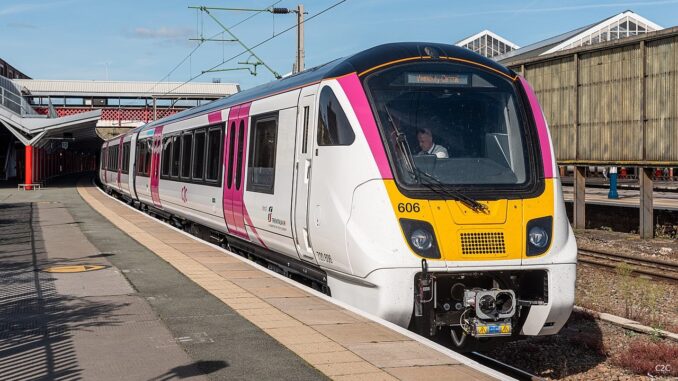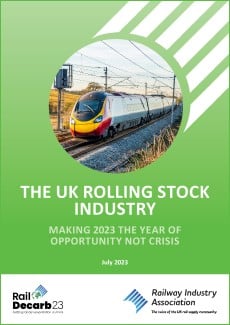
The Railway Industry Association (RIA) has published a report in which it claims that, unless urgent action is taken to upgrade or replace the oldest trains on the British network thousands, of jobs will be at risk across the railway industry.
Entitled “The UK Rolling Stock Industry – making 2023 the year of opportunity not crisis”, the report expresses concern that current rolling stock orders are set to complete by 2026 with no new orders yet placed to follow on beyond that date.
According to the report, although the UK rolling-stock sector has geared itself up to meet the zero-carbon challenge and deliver modern trains with cleaner technologies including electric, battery, hydrogen and bi-mode, major factories will start to run out of work in less than 12 months. The UK will not be able to upgrade or renew trains if the factories and skilled workers are no longer there, RIA points out.
While RIA has welcomed news that the government has made a strategic investment in a new battery ‘gigafactory’ in Bridgewater, Somerset, creating 9,000 jobs in the automotive supply industry, it stresses that support also needs to be extended to the rail supply chain to support existing jobs and clean up ageing, polluting trains.
The UK rolling stock industry employs over 30,000 people and contributes at least £1.8 billion to the economy. RIA is therefore calling on the government to place orders to replace or upgrade the oldest rolling stock and prevent the loss of thousands of jobs, worsening passenger experience due to ageing trains not being replaced, increased costs in the long-run and limited deployment of new, green technologies.
In addition, the report suggests that such orders would not require upfront public investment, as there is a proven private sector pathway to deliver new/upgraded rolling stock with costs spread over time. It adds that costs are likely to be offset by preserving competition in the market, protecting UK skills and domestic production capability and increasing revenues through better passenger experience.

RIA technical director David Clarke commented: “With the last mainline order being over three years ago and no visibility of new orders for upgrading or renewing rolling stock in the UK, we are once again facing the prospect of job losses and factory closures.
“These closures would have a deeply damaging impact, with jobs, passenger satisfaction, value for money and the drive to decarbonise all undermined by the upcoming trough in the ‘boom-and-bust’ funding cycle.
“This RIA report is clear that rolling stock orders are required now. These should be ‘no-regrets’ decisions for Government as they wouldn’t require upfront taxpayer investment but would result in a broad range of benefits, from retaining jobs to immediate carbon and air quality improvement and a better experience for passengers”.



Be the first to comment